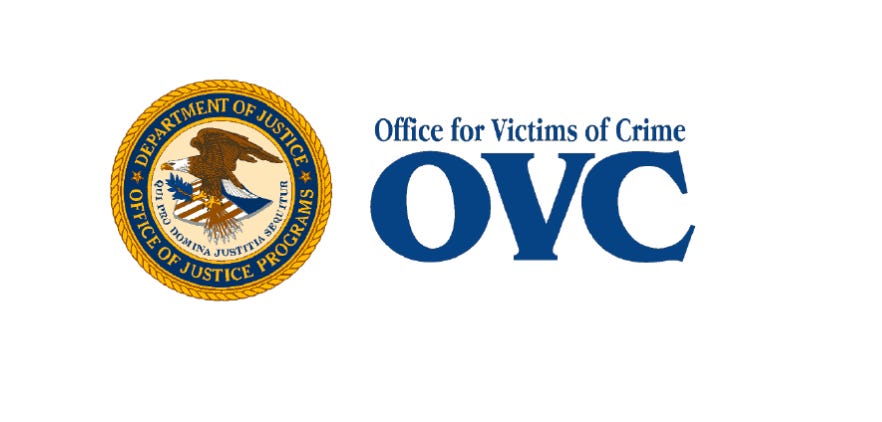Why Vermont Joined a Lawsuit Over Federal Victim Aid Funds
Vermont was allocated a total of $3.15 million in VOCA funding, which it could lose unless it agrees to help with federal immigration enforcement.
Vermont Attorney General Charity Clark recently joined a coalition of 21 states suing the Trump Administration over new restrictions placed on the Victims of Crime Act (VOCA) grants. These grants, created in 1984 under President Ronald Reagan, fund victim services across the country. According to the Vermont Attorney General’s Office, VOCA money is used for emergency shelter, advocacy, medical and funeral expenses, crime scene cleanup, and counseling for survivors of crimes such as domestic violence and sexual assault.
The U.S. Department of Justice (DOJ) has announced that states will not receive VOCA grants unless they assist the Department of Homeland Security in carrying out civil immigration enforcement. According to the coalition of attorneys general, this condition is unrelated to VOCA’s purpose and violates Congress’s authority over federal spending.
How Much Vermont Stands to Lose
In fiscal year 2025, Vermont was allocated a total of $3.15 million in VOCA funding, according to the U.S. Department of Justice’s Office for Victims of Crime. This included $305,000 for victim compensation and $2.84 million for victim assistance. These funds support Vermont programs that reach survivors of domestic violence, provide crisis counseling, and pay for essential expenses after a crime.
If the new federal conditions are enforced, Vermont could lose this entire allocation unless it agrees to help with federal immigration enforcement. According to the California Attorney General’s Office, VOCA funding nationwide amounts to more than $1 billion per year, distributed by fixed formulas that Congress has maintained for decades.
Sidebar: What VOCA Funds Do in Vermont
According to the U.S. Department of Justice’s Office for Victims of Crime and the Vermont Attorney General’s Office, VOCA funds support a wide range of programs that would be at risk if federal conditions block Vermont’s allocation.
Emergency Shelter & Housing
Provides safe shelter for survivors of domestic violence, sexual assault, and other crimes.Crisis Counseling & Advocacy
Funds victim and witness advocacy programs, including hotline services and courtroom accompaniment.Medical, Funeral, and Burial Costs
Covers out-of-pocket expenses for victims and families, including sexual assault forensic exams.Crime Scene Cleanup
Helps victims and their families restore their homes after violent crimes.Children & Family Services
Supports specialized programs for child abuse survivors and families recovering from trauma.Compensation Payments
Vermont distributes direct compensation to victims for lost wages, medical bills, and related costs.
In fiscal year 2025 alone, Vermont was allocated $3.15 million for these programs. Without VOCA funds, state officials warn that either these services will be cut back or Vermont taxpayers may need to cover the gap.
Why Immigration Enforcement Matters Here
The DOJ’s policy would effectively require Vermont to align state and local law enforcement activities with federal immigration enforcement priorities. According to the coalition’s complaint, that means VOCA funding—designed to support victims—would instead be used as leverage to force states into a federal immigration role.
Attorney General Clark said her office is suing “to protect this funding for the Vermonters who need it.” Other state attorneys general, including in Oregon and California, have argued that the DOJ has no legal authority to attach unrelated immigration conditions to grants that Congress has already directed to victims.
Precedent and Legal Arguments
The coalition argues that the Trump Administration’s conditions are “arbitrary and capricious” and violate the Constitution’s Spending Clause. According to legal filings, Congress has consistently required that VOCA funds be distributed by formula, ensuring states can support victim services without political interference.
This is not the first time states have challenged federal attempts to tie unrelated immigration conditions to grant programs. Previous lawsuits over law enforcement and public safety grants—such as the Edward Byrne Memorial Justice Assistance Grants—led courts to strike down similar conditions as beyond DOJ’s statutory authority.
What It Means for Vermont Taxpayers
The lawsuit does not seek new state spending but aims to preserve federal funds Vermont is already entitled to under VOCA. According to the Oregon Attorney General’s Office, VOCA grants are financed through federal criminal fines and penalties, not state tax dollars. Losing these funds would mean Vermont must either cut services for victims of crime or replace the money from its own budget.
In this context, joining the lawsuit is less about expanding Vermont’s role in national politics and more about ensuring that victim services in the state continue without disruption.



